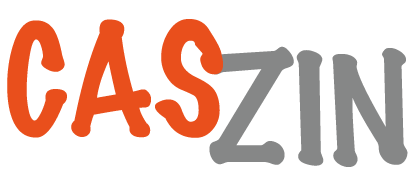Also available in:
Deutsch (German)
The implementation of the DAC7 directive affects all creators who work with online platforms on which they sell their self-produced content, for example. The data collection mania of the tax authorities is thus reaching a new level throughout Europe. The only exceptions are providers who generate less than €2,000 in annual revenue and make fewer than 30 sales per year. The first reporting year is 2023, the original deadline for platform operators to submit their data has just been extended from 31 January to 31 March 2024, but things are still getting serious.
CASZIN spoke to tax consultant Lars Rinkewitz about the details of the Platform Tax Transparency Act (PStTG), which implements the European DAC 7 Directive in Germany.
CASZIN:
Accordingly, the platform operators have requested the necessary data from their creators in recent weeks. If the data is not available, they want to refuse to pay out the revenue generated by the creators in future. Are they actually authorised to do this?
Lars Rinkewitz:
The good news is that platform operators must submit their reports to the Federal Central Tax Office for 2023 by 31 March 2024. The deadline has been postponed by two months.
However, if a provider does not comply with the platform operator’s request for the relevant information, the platform operator has two options, which are set out in Section 23 PStTG. The platform operator must first remind the provider twice to submit the data and information. If they are still not provided, the platform operator can exclude the provider. This can be done by blocking or cancelling the registration. On the other hand, the platform operator can withhold payment of the remuneration to defaulting providers. Both measures may be taken no later than 180 days but not before 60 days have passed since the last reminder. As soon as the defaulting provider has provided the relevant data, the measures must be cancelled.
Yes, they are entitled to do so as long as they fulfil the legal requirements. In view of the potential fine, platform operators also have a vested interest in withholding the remuneration.
CASZIN:
This will provide the tax authorities with an effective means of recognising any undeclared income. How can we imagine this in practice, will there be a kind of automatic procedure for tax evasion if someone does not declare his or her income earned via this platform in the tax return?
Lars Rinkewitz:
The tax authorities receive a lot of information via these reports. Platform operators not only report all master data (name, address, etc.) and tax registrations (tax identification number, VAT identification number) from the providers, but also the amount of remuneration. These are clearly assigned to the taxpayers.
The competent tax offices of the taxable providers are likely to receive control notifications with the remuneration received. The tax offices use the available data (tax returns, e-balance sheets or revenue-surplus statements) to check whether the remuneration was also declared and reported in the relevant period. If this cannot be clarified, enquiries may be made. Or tax audits may be initiated directly.
The remuneration must be taken into account for income tax purposes (as income from letting and leasing, as income from self-employment or business operations, as other income or from private sales transactions) and possibly also for trade tax and, above all, VAT (depending on the amount of the annual remuneration).
Conclusion: All relevant sales should be declared in the tax returns to be submitted. Undeclared sales or profits can constitute tax evasion. It will be much easier for the tax authorities to check.
CASZIN:
Let’s assume that a creator has ceased his or her activity in the course of 2023, but has earned over €2,000 since 1 January 2023 and now fails to comply with the obligation to submit the relevant data. This puts a platform in the unpleasant position of not being able to provide the required data in full. Is there then an inevitable threat of a fine?
Lars Rinkewitz:
Platform operators can be fined for non-compliance with the regulations (Section 25 PStTG). This includes violations of registration obligations, reporting obligations, plausible data collection, enforcement of the obligation to cooperate with providers or labelling obligations. Depending on the offence, fines of between 5,000 and 50,000 euros are due. So it can be expensive.
For this reason, platform operators will ensure in their own interest that all data is collected promptly and is available for reporting. The information should be collected directly upon registration.
Important to know: The fine can also be imposed on the persons acting on behalf of the platform operator.
CASZIN:
One of the largest platforms, OnlyFans, is based outside the EU (UK). OnlyFans is also vehemently demanding the complete data in accordance with DAC7 from its creators. Is this even necessary in this case?
Lars Rinkewitz:
Platform operators who are based in Germany, in another EU Member State or in a third country and for whom no exemption under Section 11 PStTG has been granted may be subject to reporting requirements.
Platform operators may be exempt from the reporting obligation if they have been exempted upon request or are considered qualified platform operators.
Upon application, a platform operator can be exempted if the operated platform cannot be used by providers subject to reporting requirements. The processing of the application for exemption by the Federal Central Tax Office is subject to a fee and costs 5,000 euros. There is a simplified procedure for an extension with a fee of 2,500 euros. The exemption must be applied for annually by 31 October for the following reporting period. An exemption is accepted if an exemption has been authorised by another EU state.
A platform operator based in a third country (i.e. also the UK) is recognised as qualified if it is subject to a comparable reporting obligation there and information is exchanged with all EU member states concerned. A platform operator not based in the EU (no permanent establishment in Germany or another EU member state) is therefore exempt from the obligation to register in Germany if and to the extent that they report the required information to their local competent authorities and this information is exchanged with the EU member states (Section 7 PStTG).
For a platform operator in Germany to be subject to the reporting obligation, a connection with Germany is required. This connection may result from the registered office or management, an entry in the register or a permanent establishment in Germany. If such a connection exists in another EU member state, the reporting obligation applies in this other member state. This may also result in a reporting obligation in several EU member states.
If there is no connection to any EU country, i.e. not even to Germany, a reporting obligation of the platform operator based in a third country may nevertheless apply if the platform operator facilitates activities of providers subject to the reporting obligation or the transfer of immovable assets located in the EU.
As OnlyFans collects data from providers, I assume that OnlyFans sees itself as a platform operator that is obliged to report. And not only in Germany, but also in other EU member states. OnlyFans may also have obtained legally binding information from the Federal Central Tax Office (§ 10 PStTG).
CASZIN:
Mr Rinkewitz, thank you very much for the interview and the detailed answers.
Contact:
Lars Rinkewitz, Steuerberater, Diplom-Kaufmann, Prokurist
ECOVIS KSO Steuerberater & Rechtsanwälte
Niederlassung Langenfeld
Katzbergstr. 1a,
40764 Langenfeld
Germany
Tel.: +49 2173 399 47-0 Fax: +49 2173 399 47-20
ww.ecovis-kso.com

